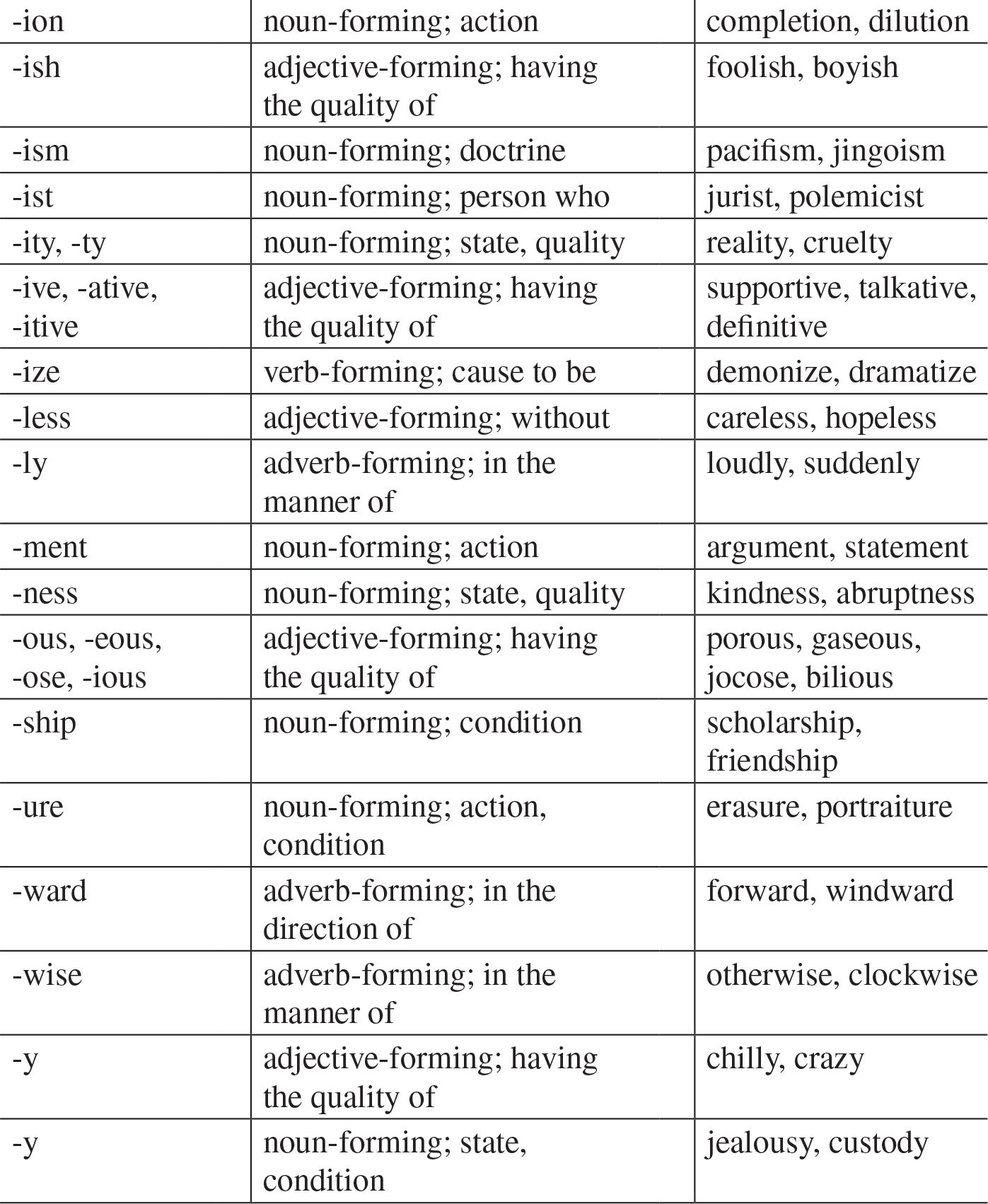CHAPTER 3
Vocabulary and General Knowledge
A mature vocabulary helps you to read with comprehension, write professionally, and speak astutely on a variety of issues. The A2 test not only expects you to have a relatively broad general vocabulary but also to recognize certain terms that are related to health care.
GENERAL KNOWLEDGE
Most of your vocabulary knowledge derives from reading and conversation. However, there are certain words that you may have heard or read but have never bothered to define. Table 3.1 of difficult vocabulary words offers some useful words with their definitions.
Table 3.1 Difficult Vocabulary Words
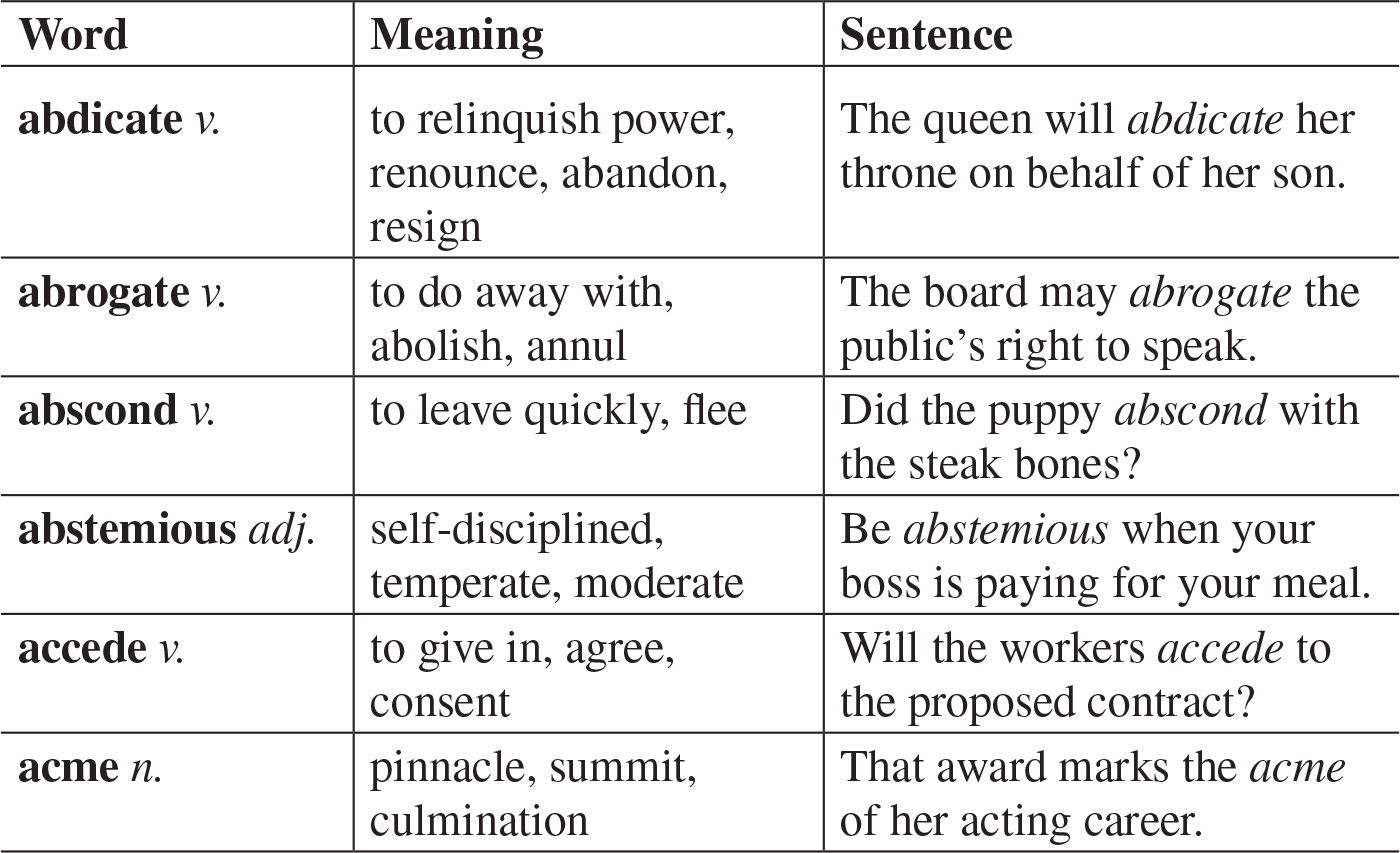
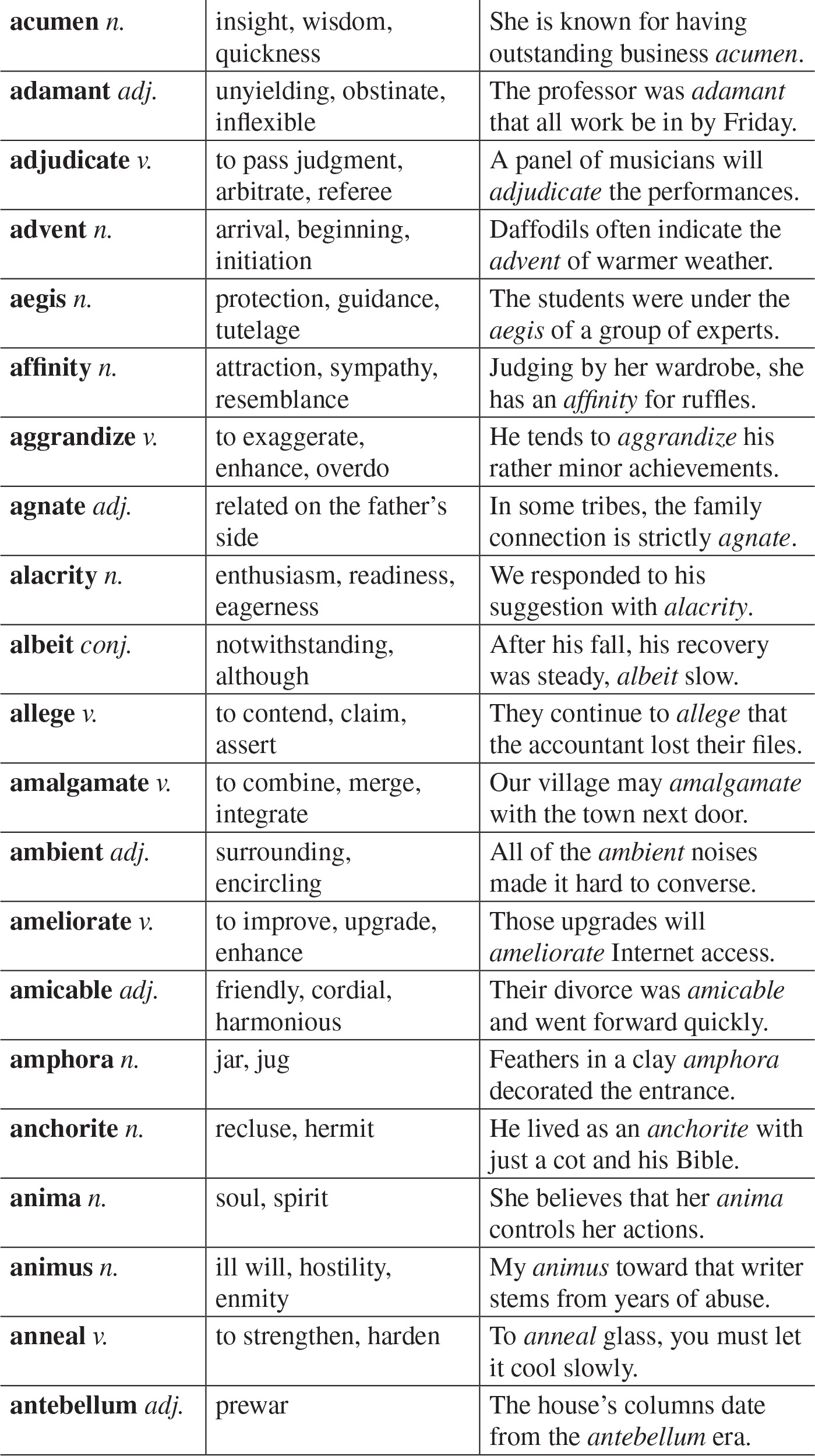


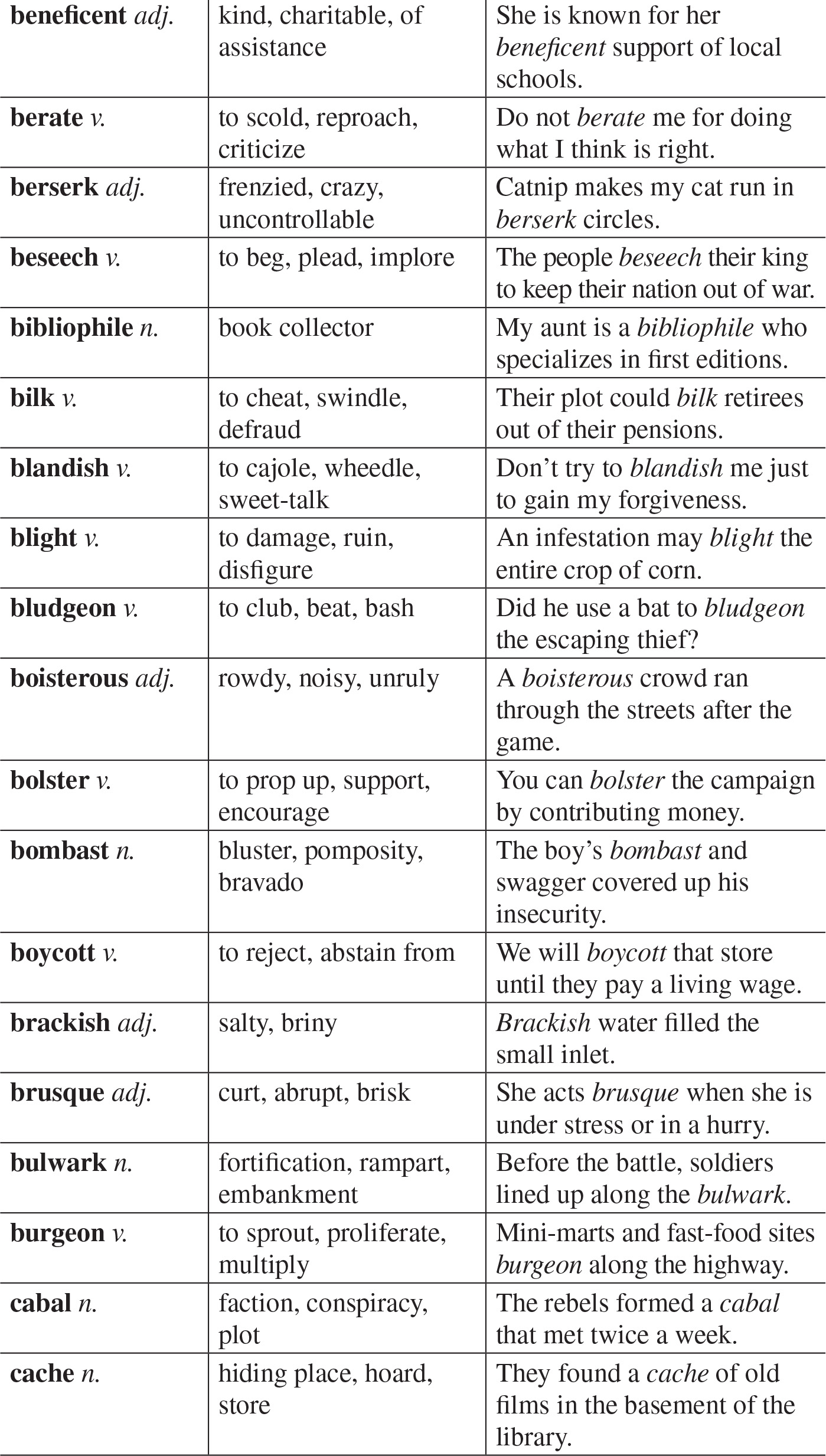

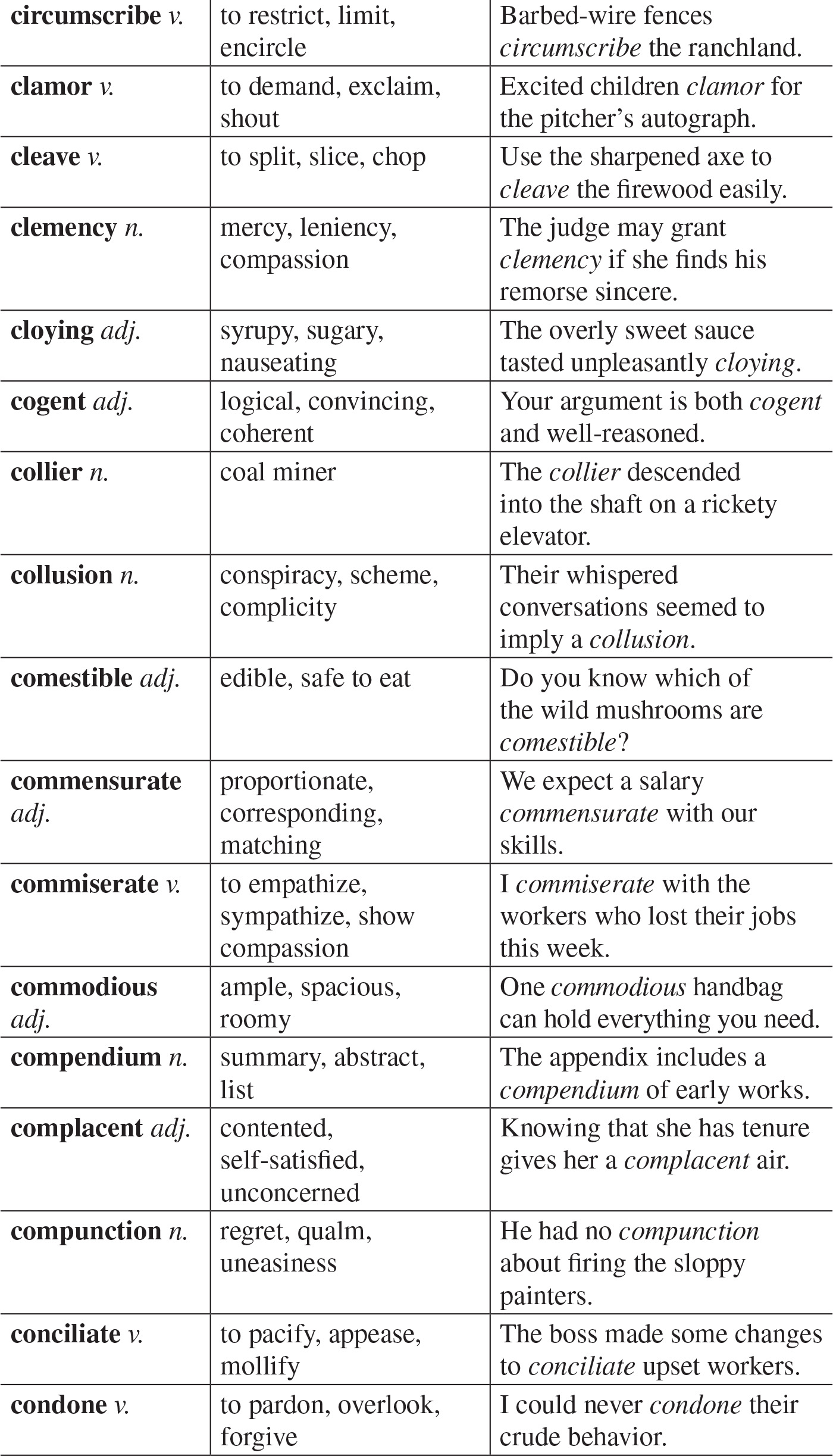
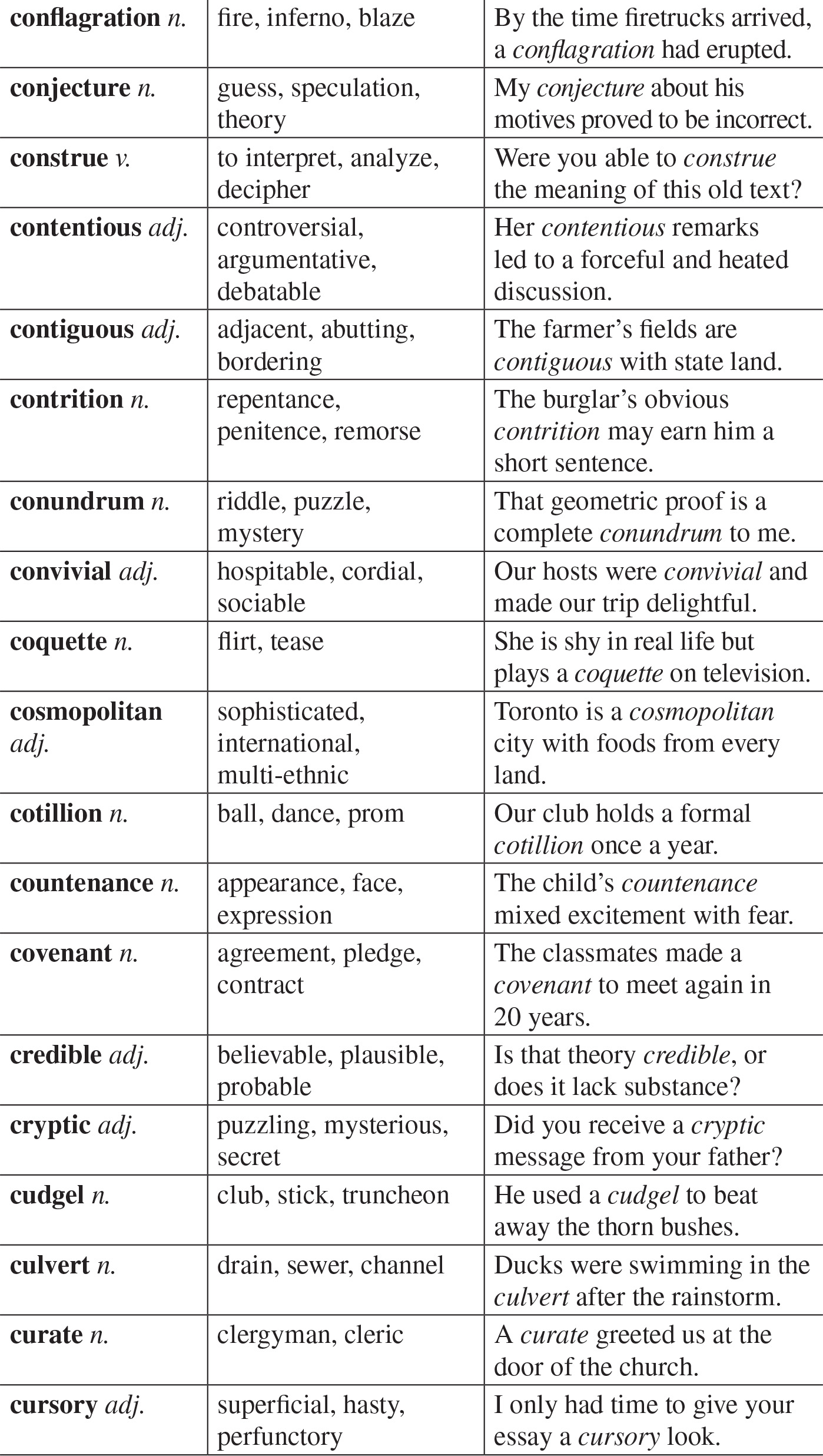

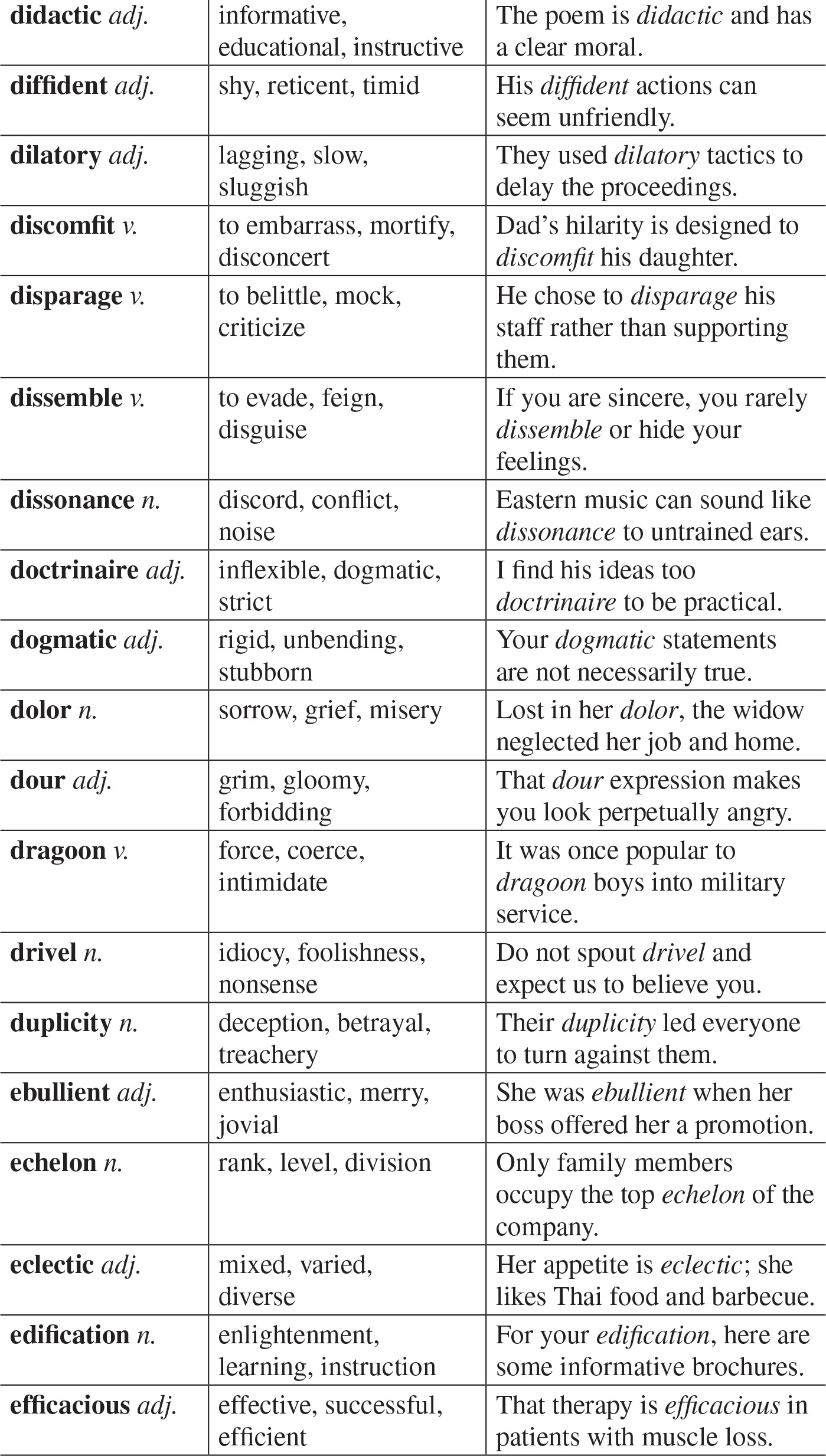
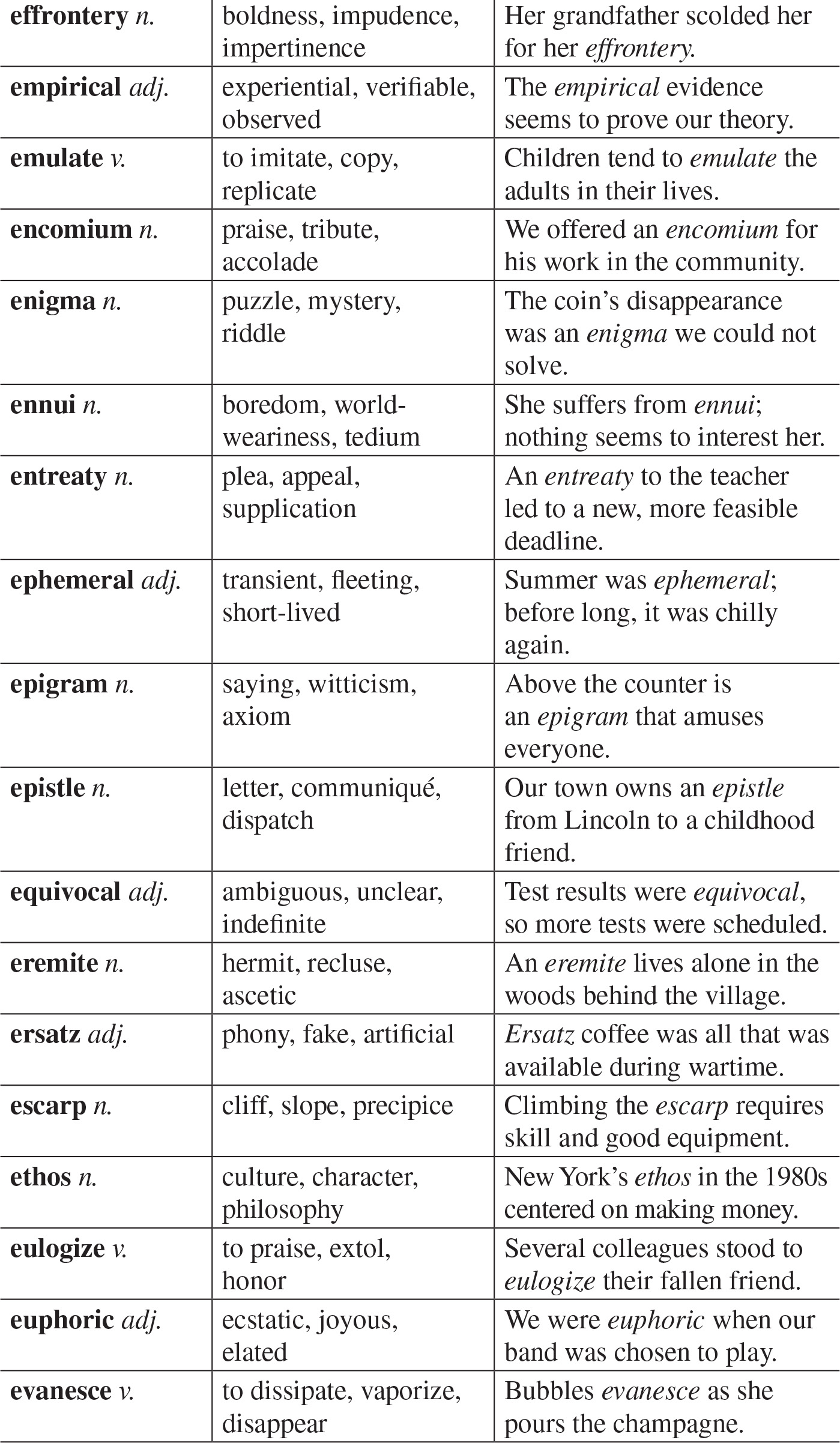
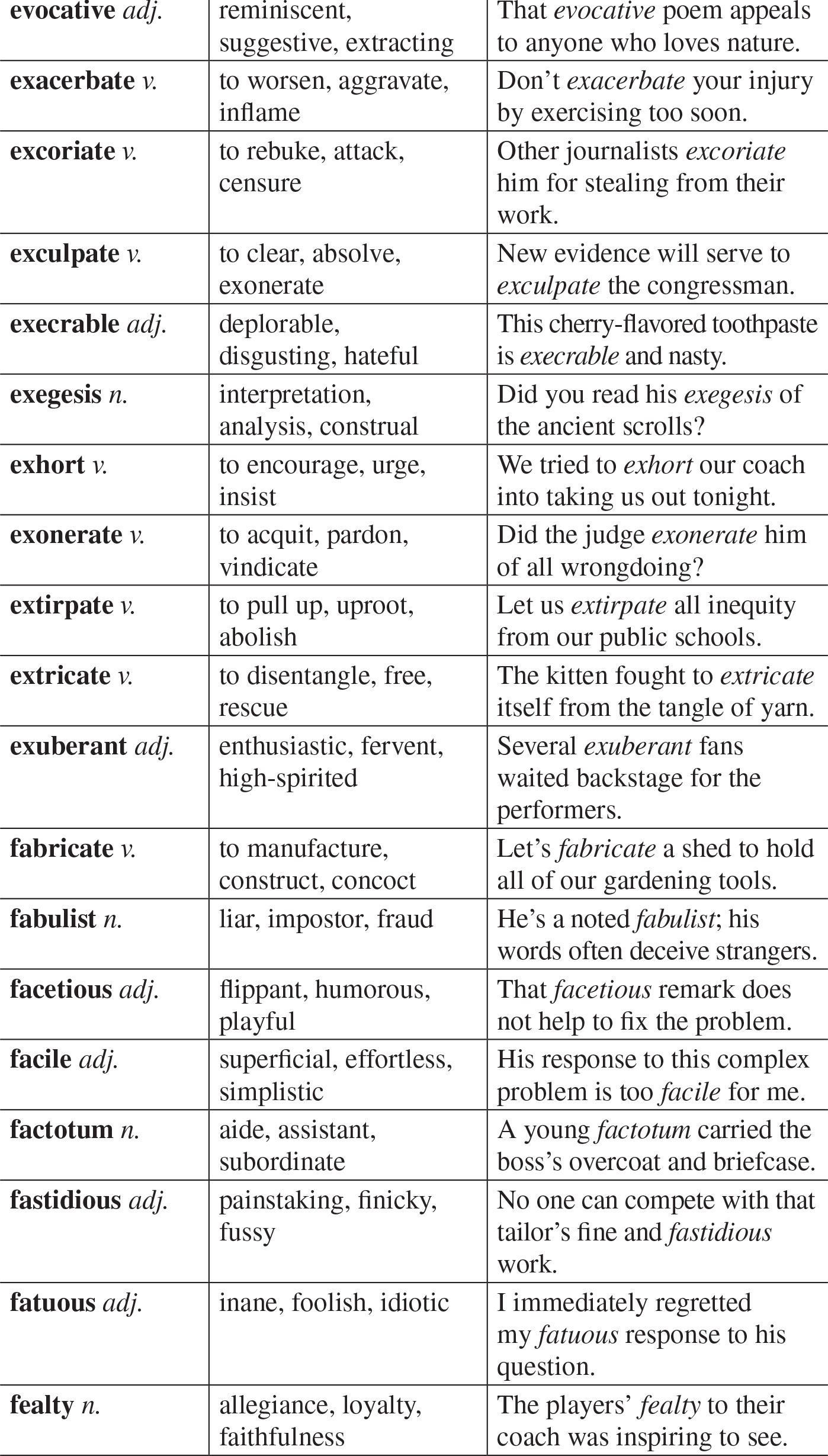
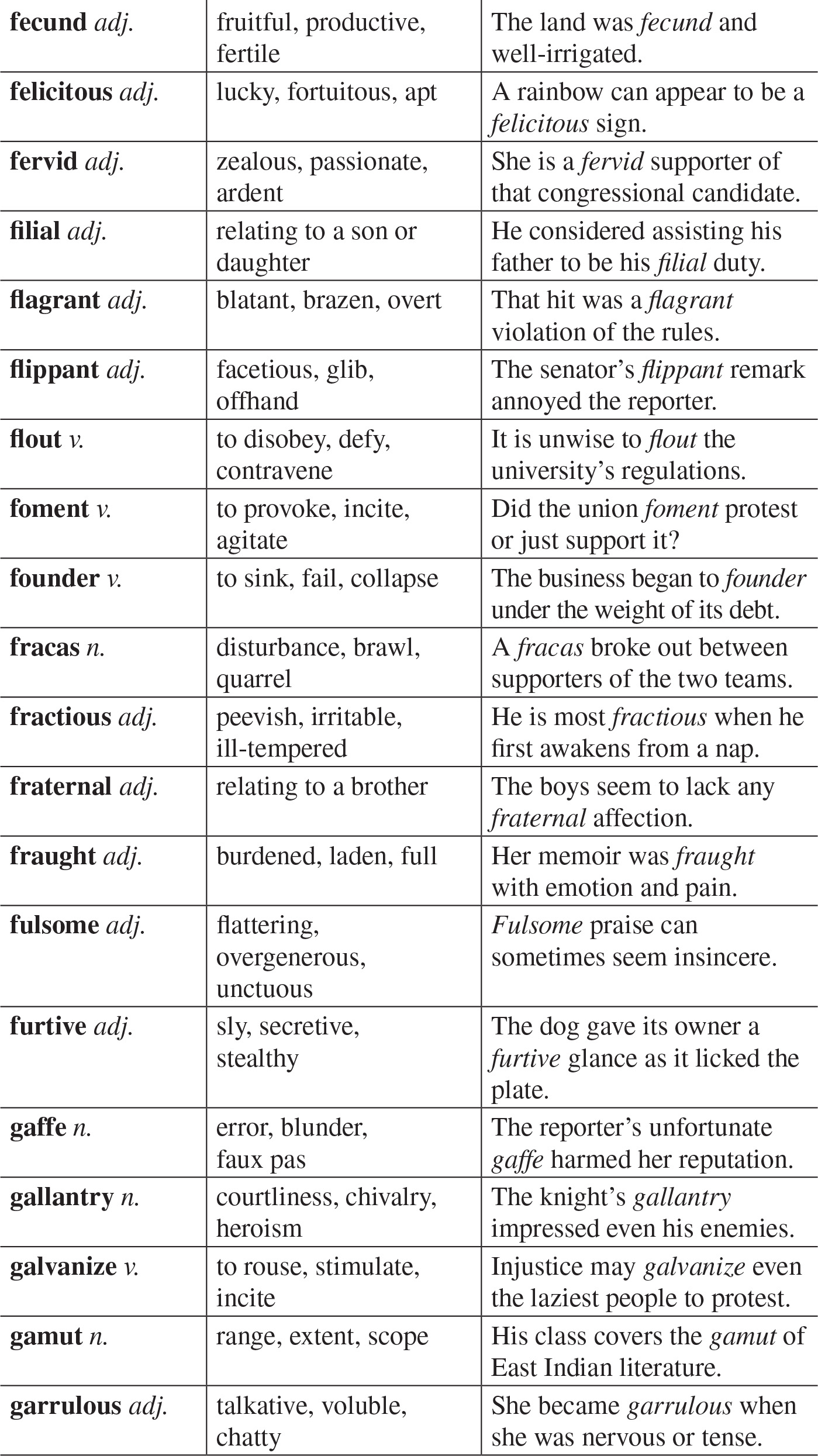
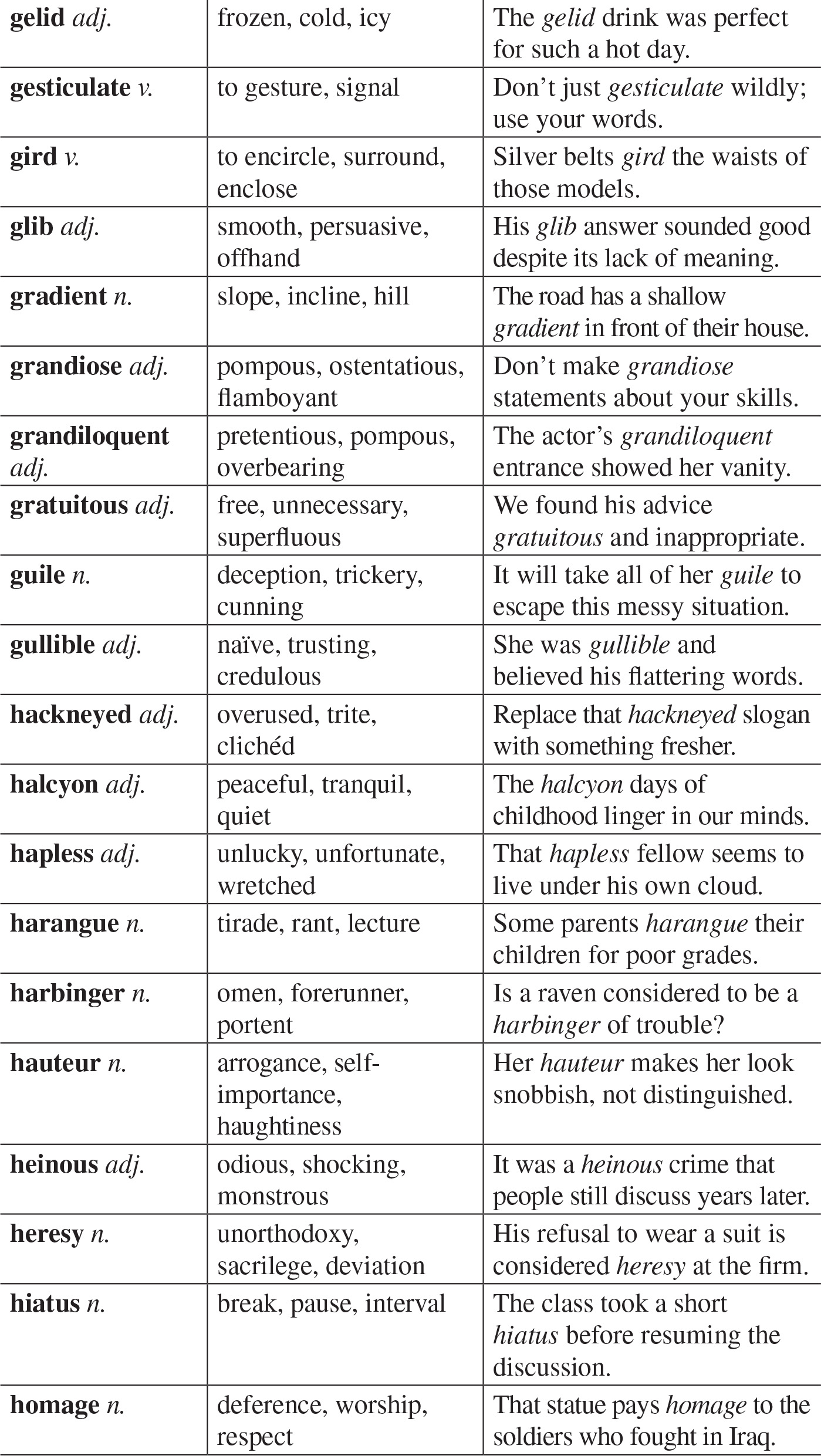
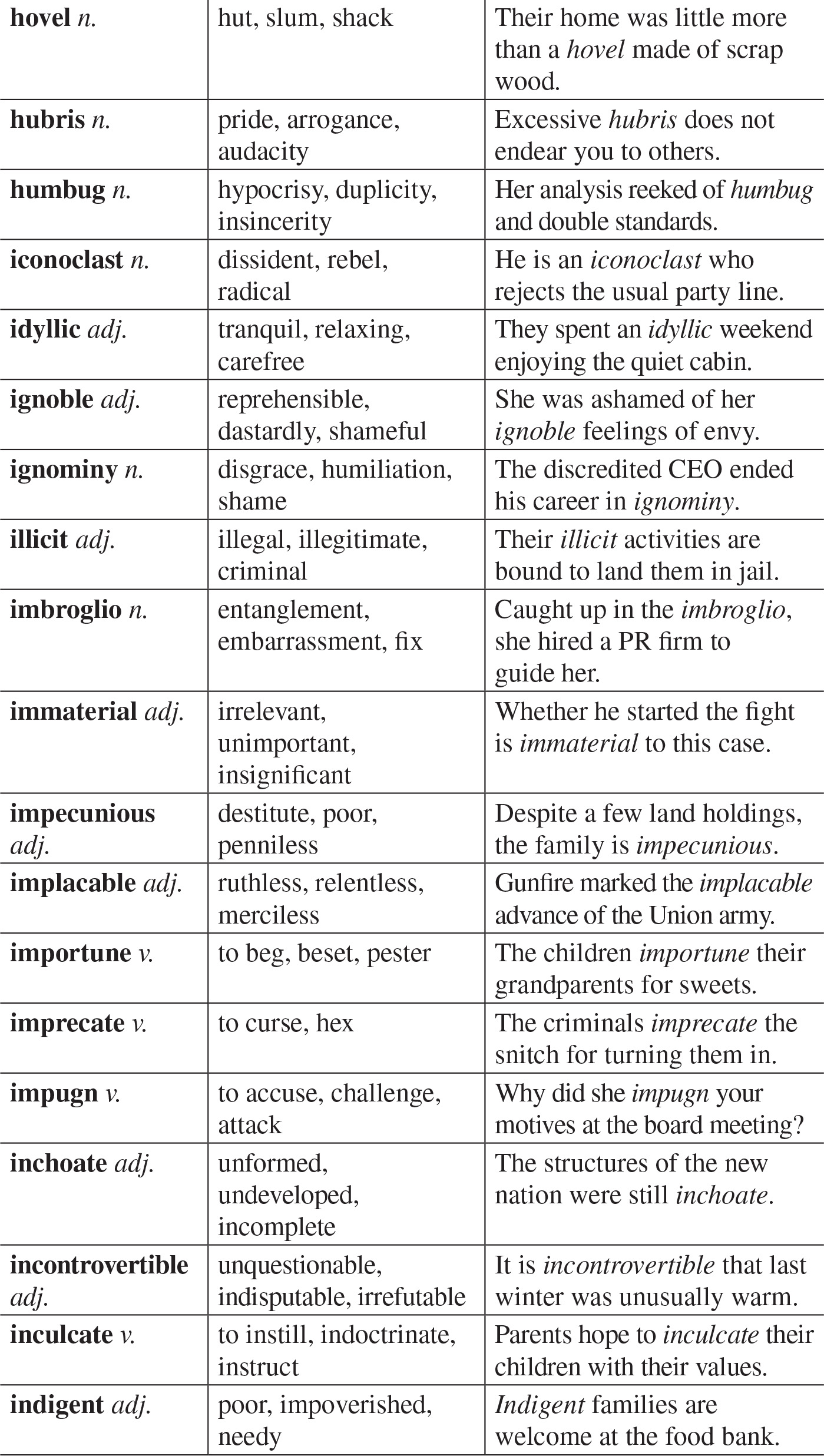
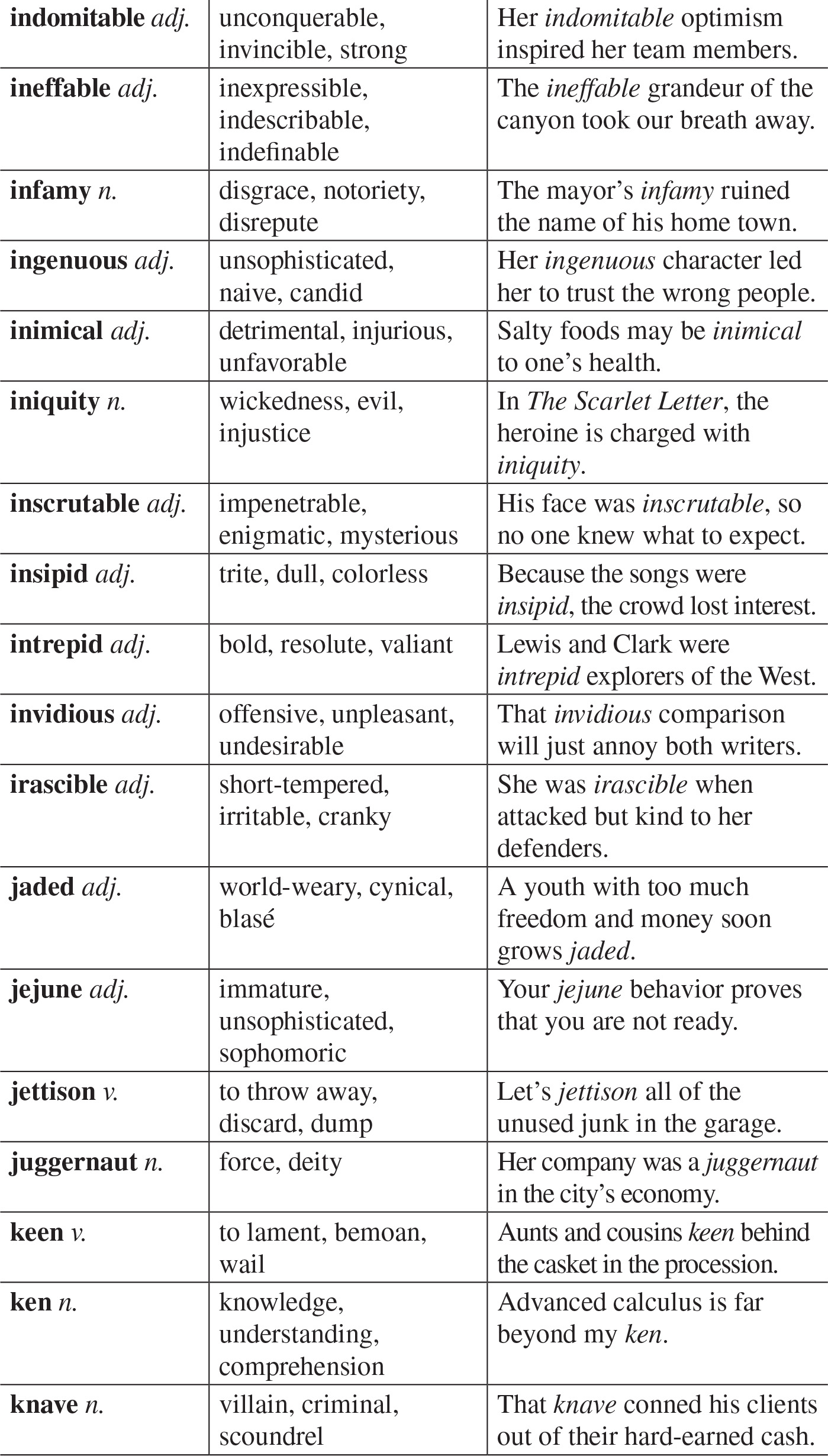
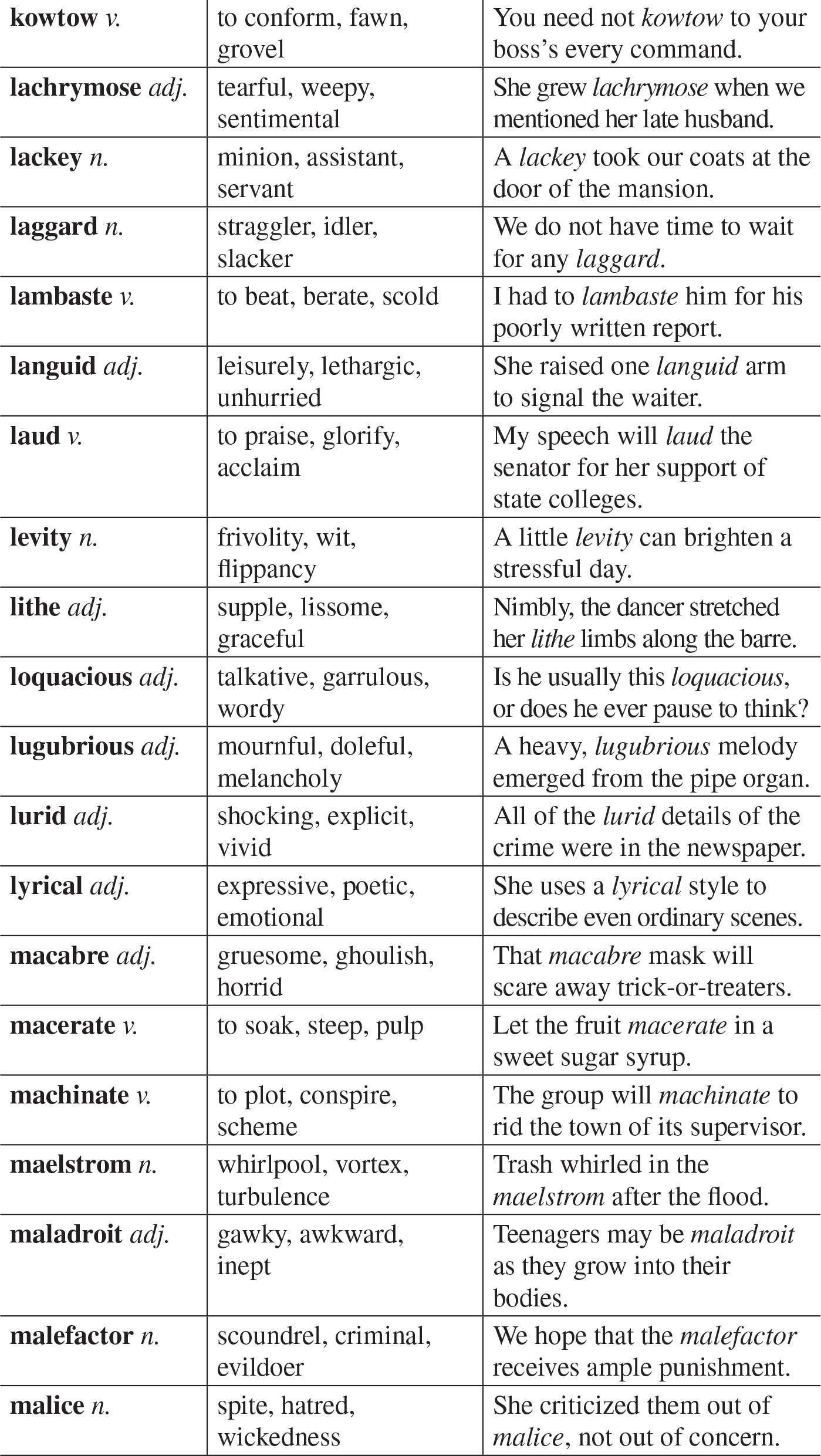

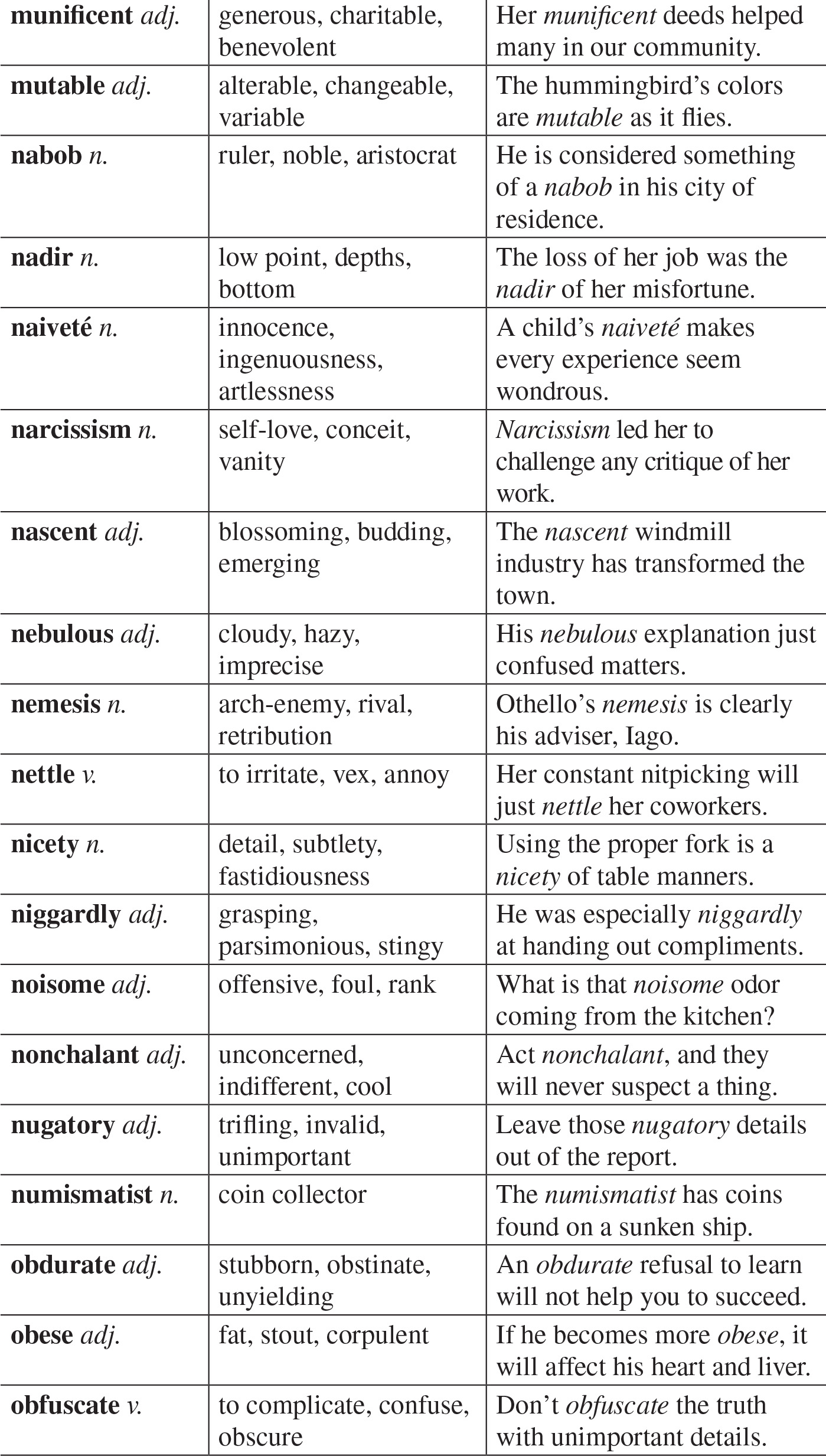
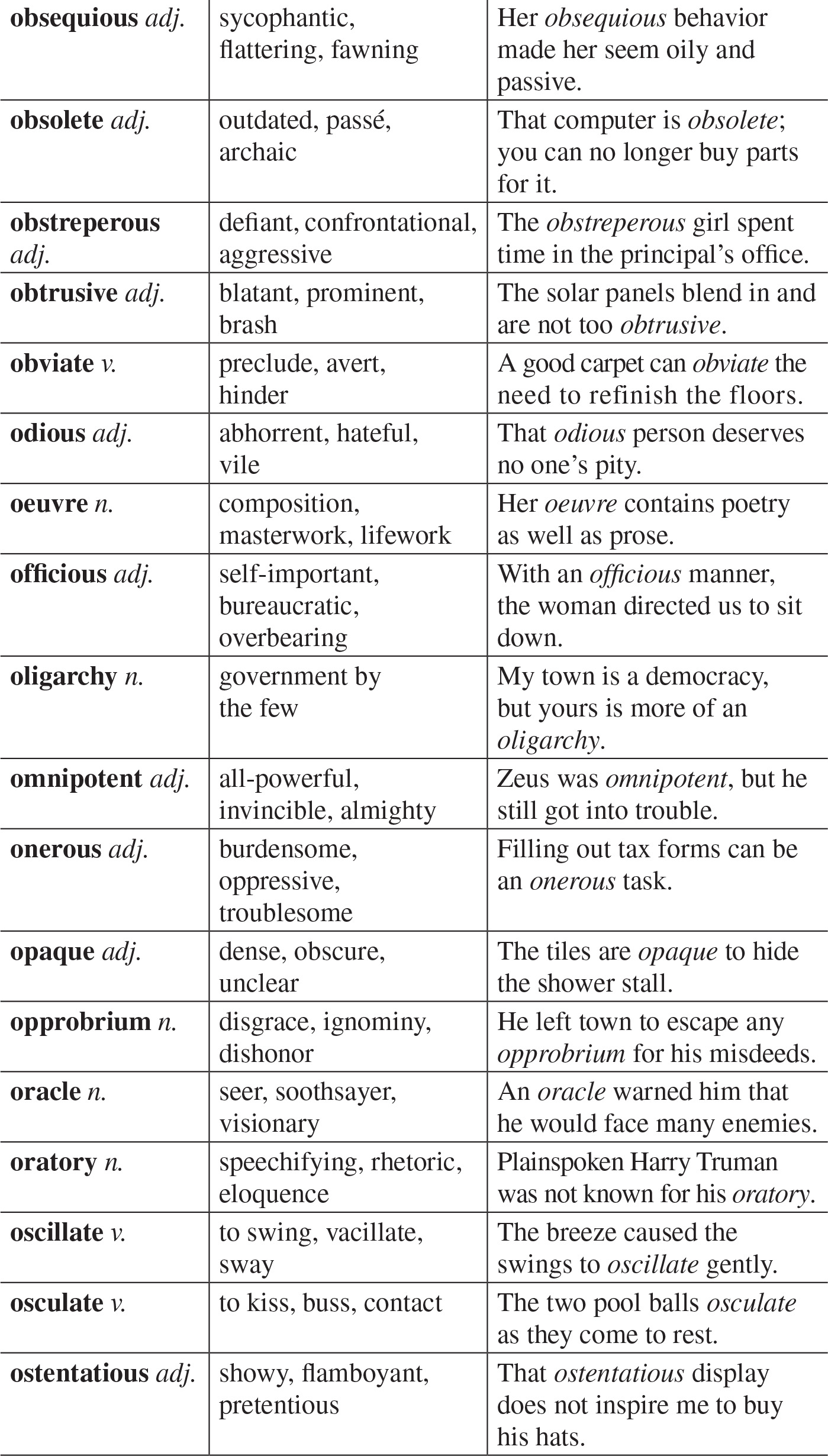
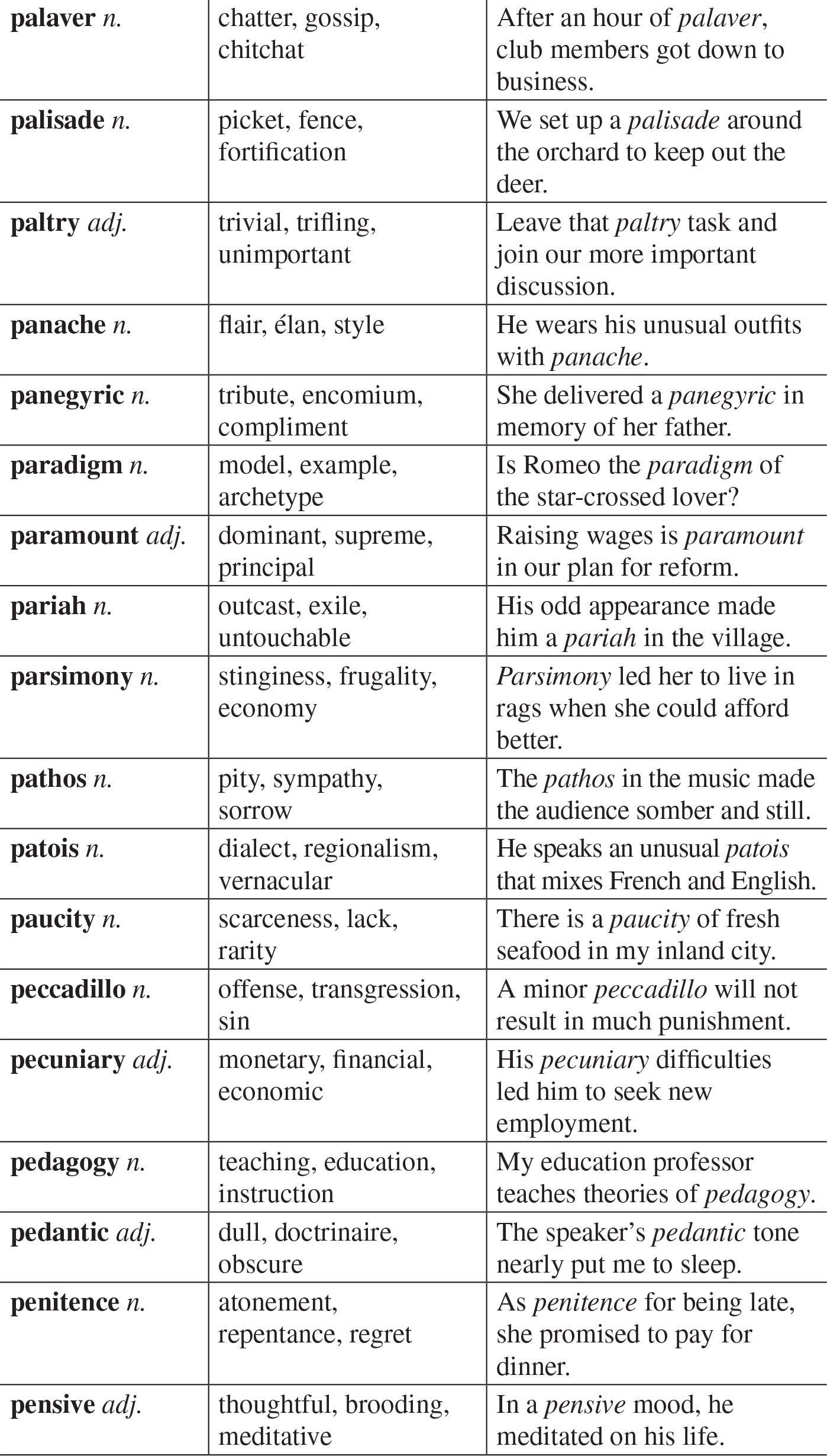


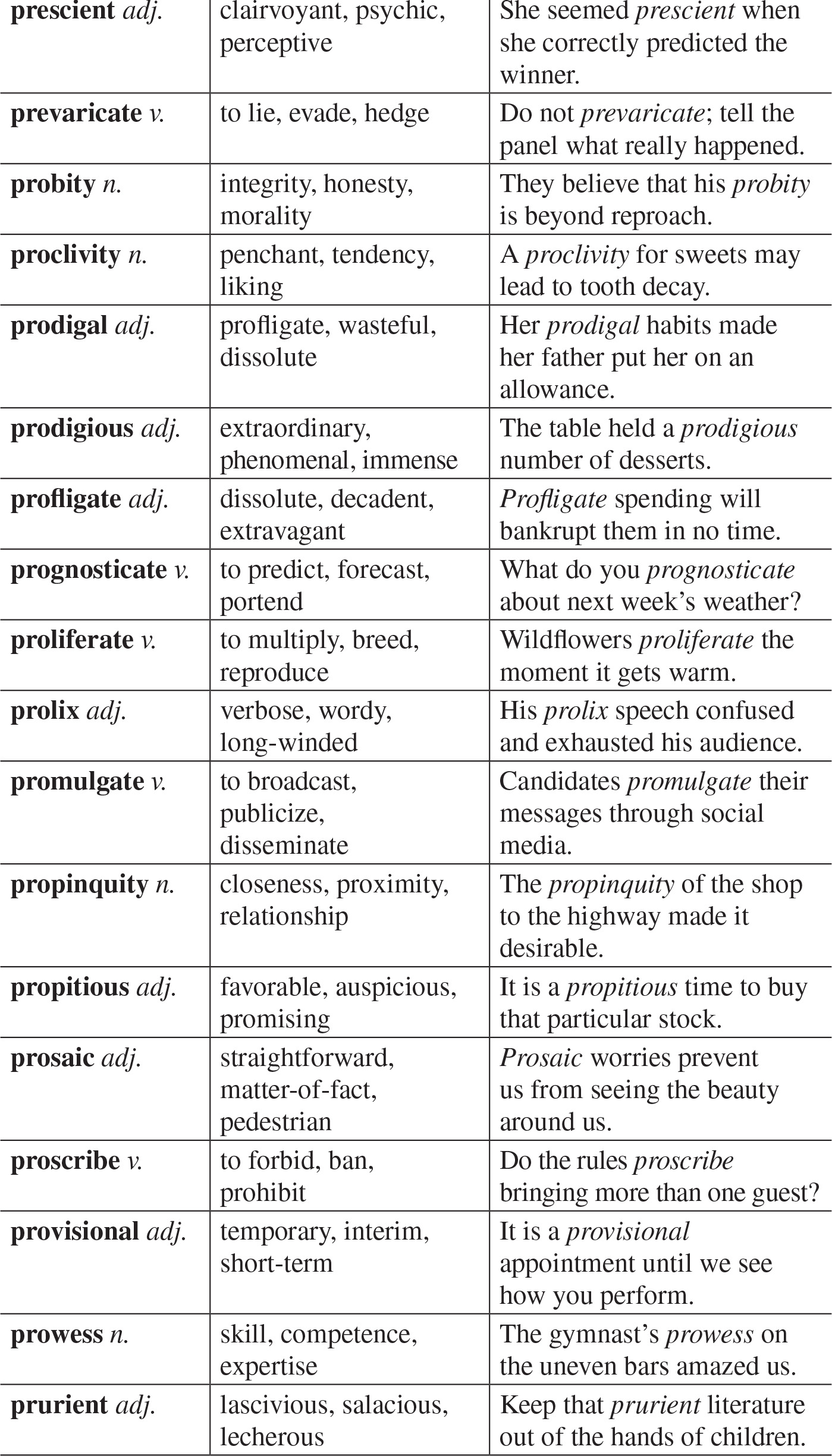
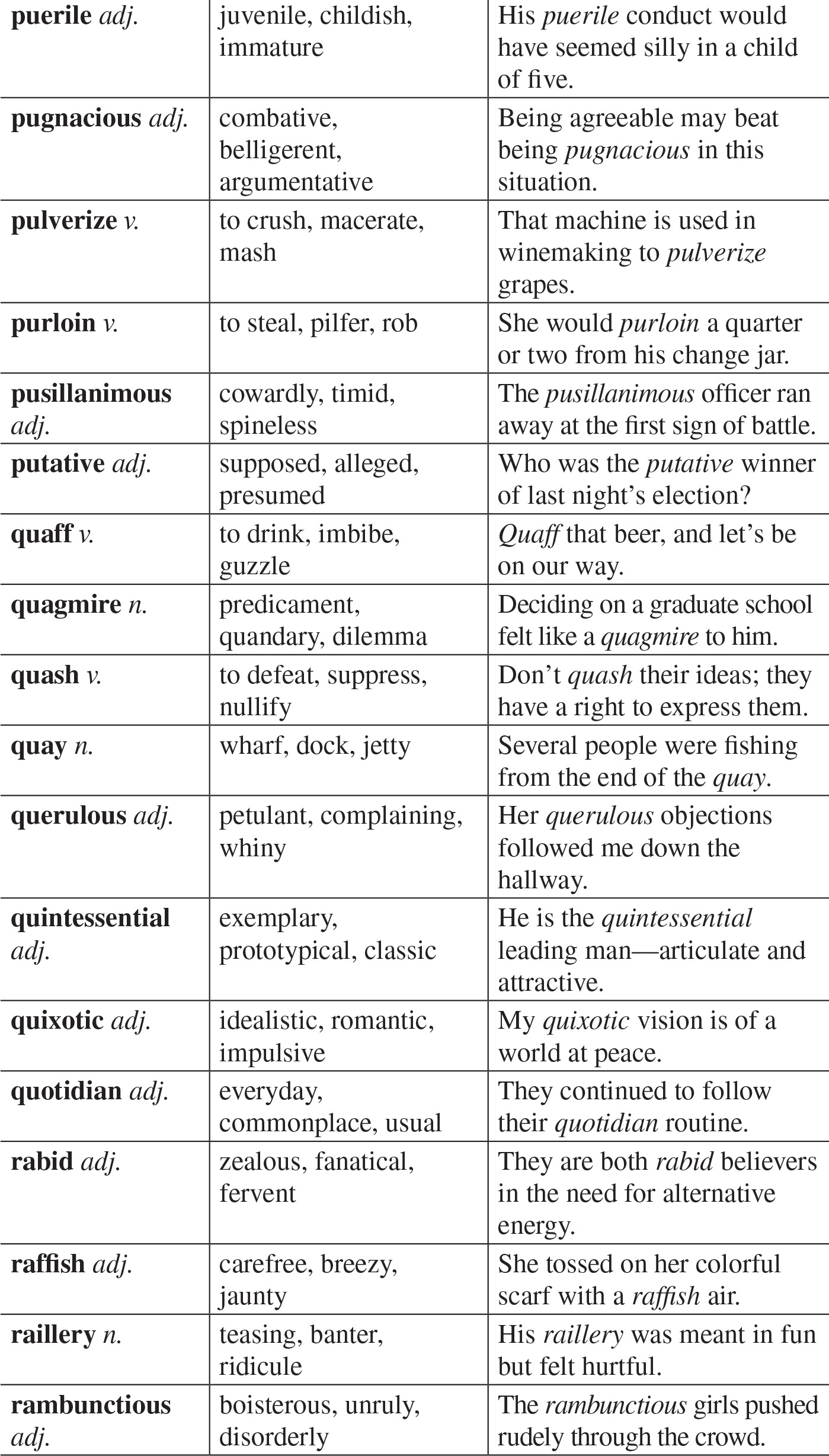
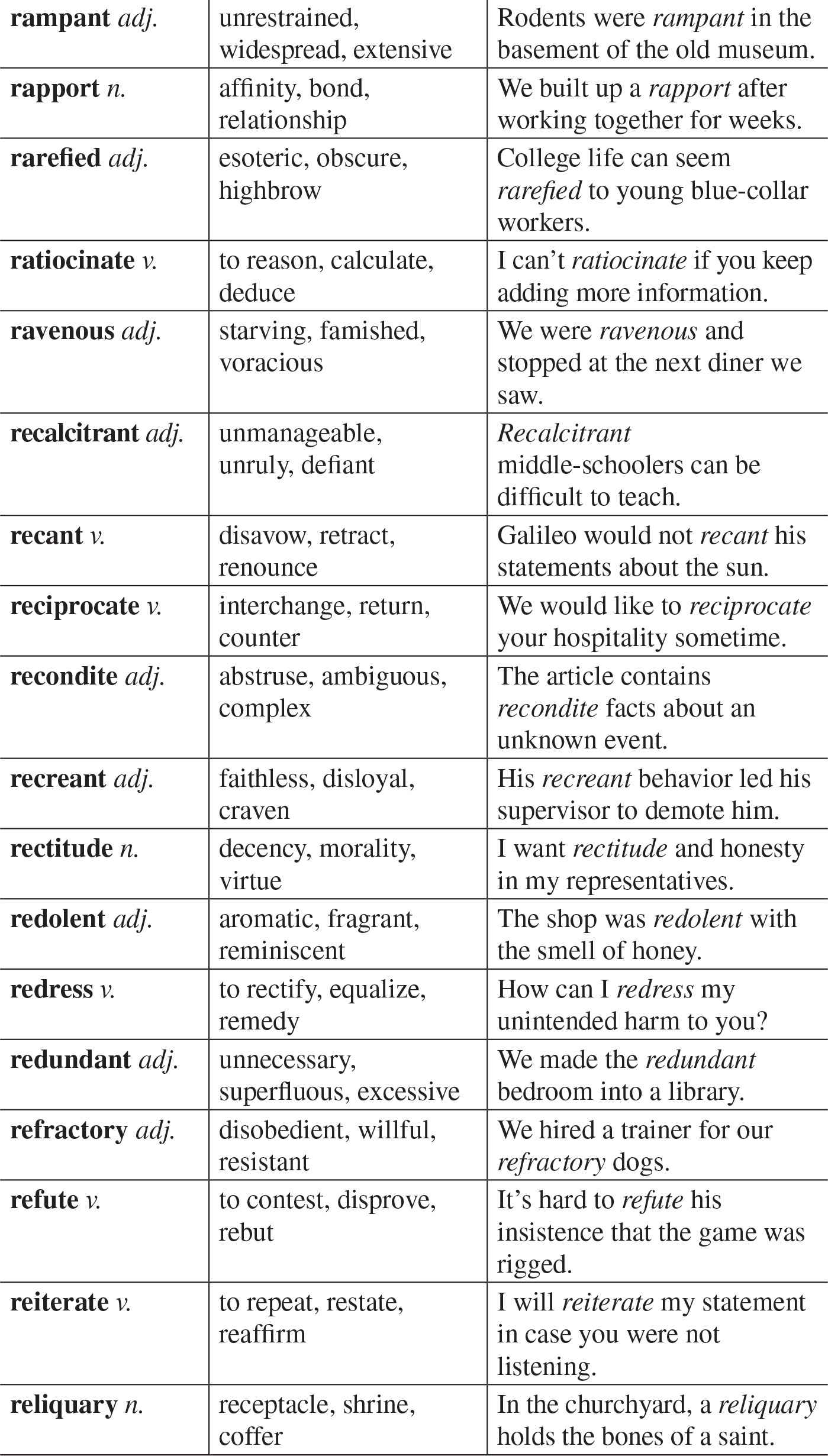


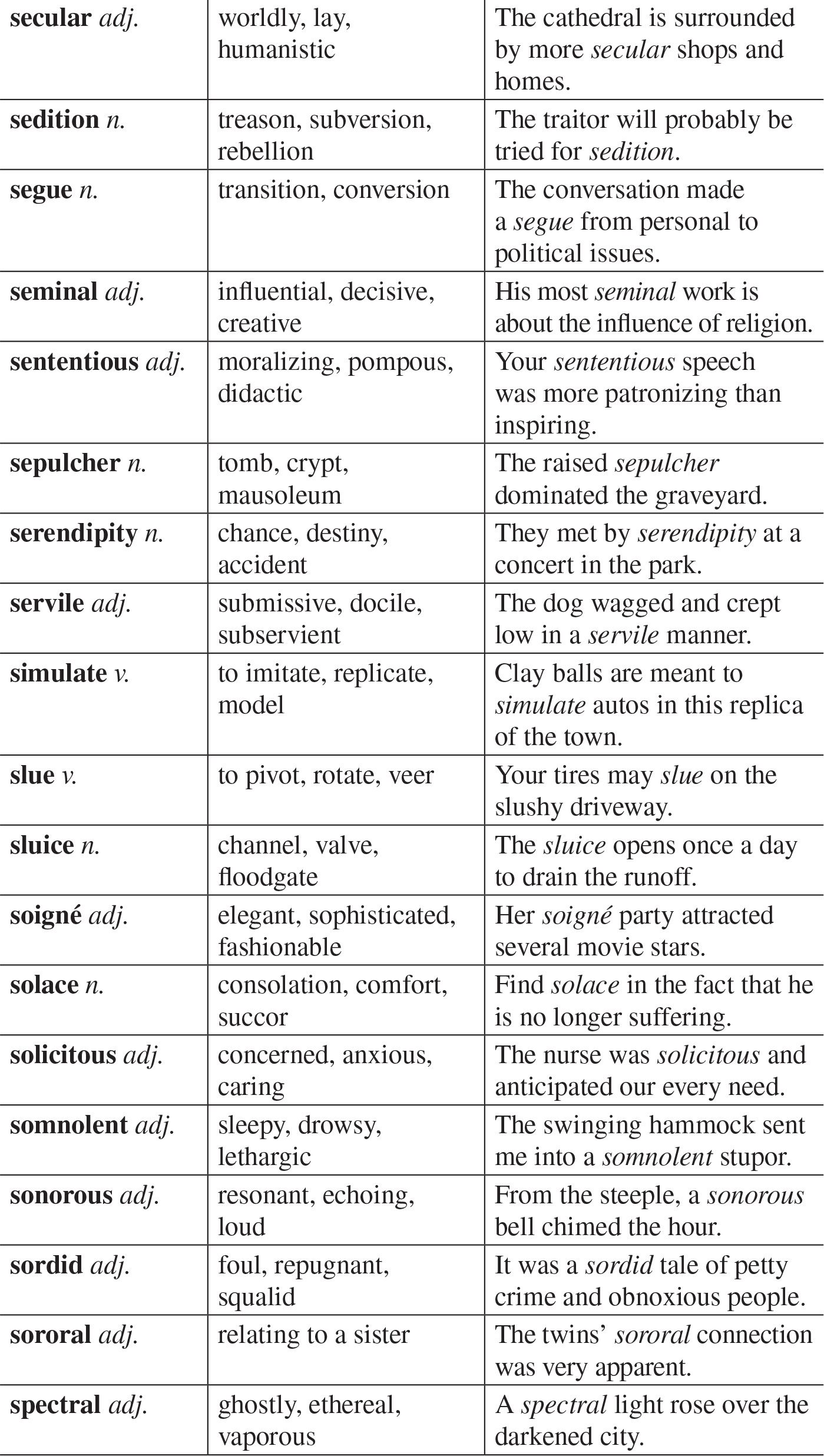
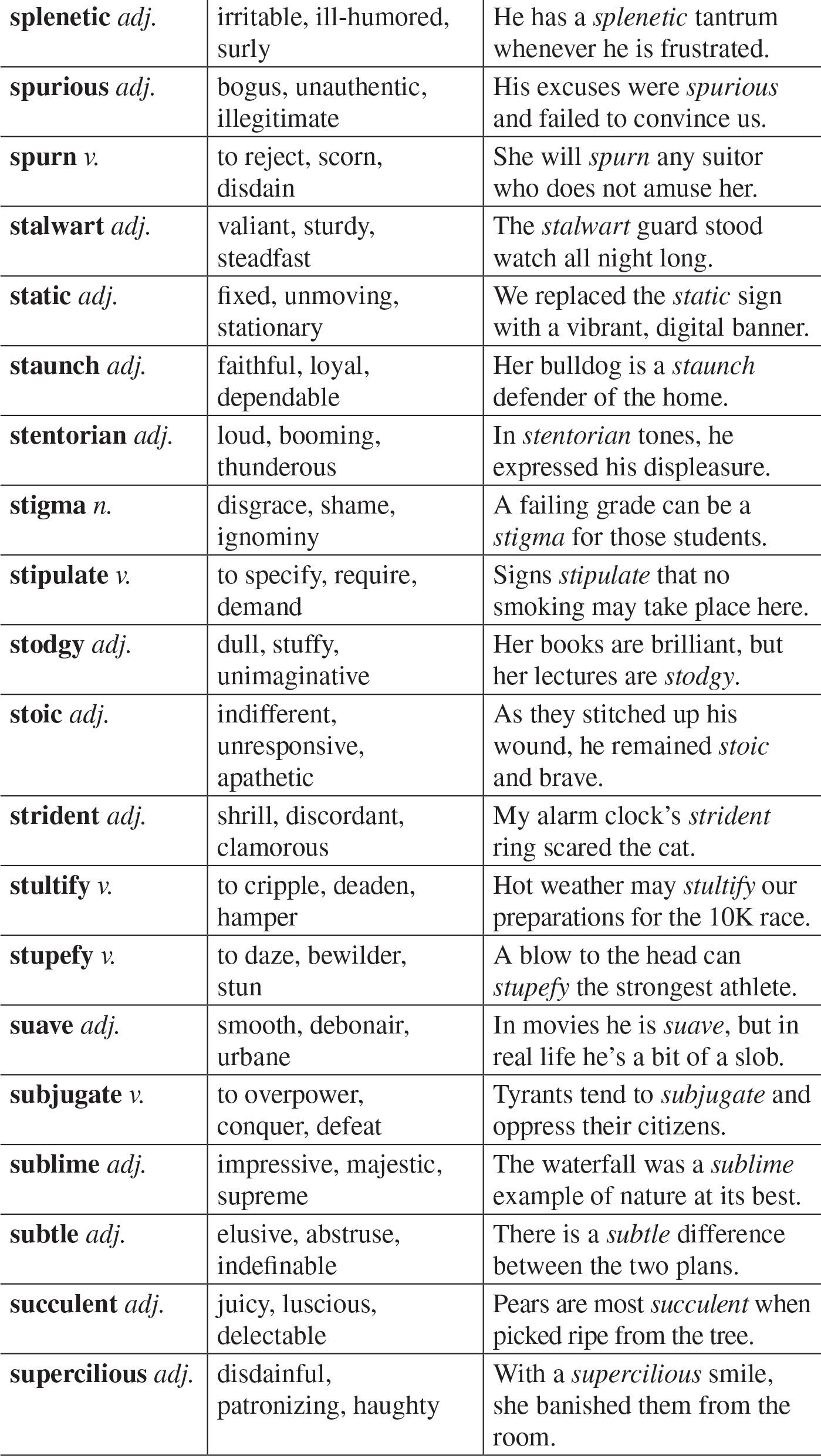

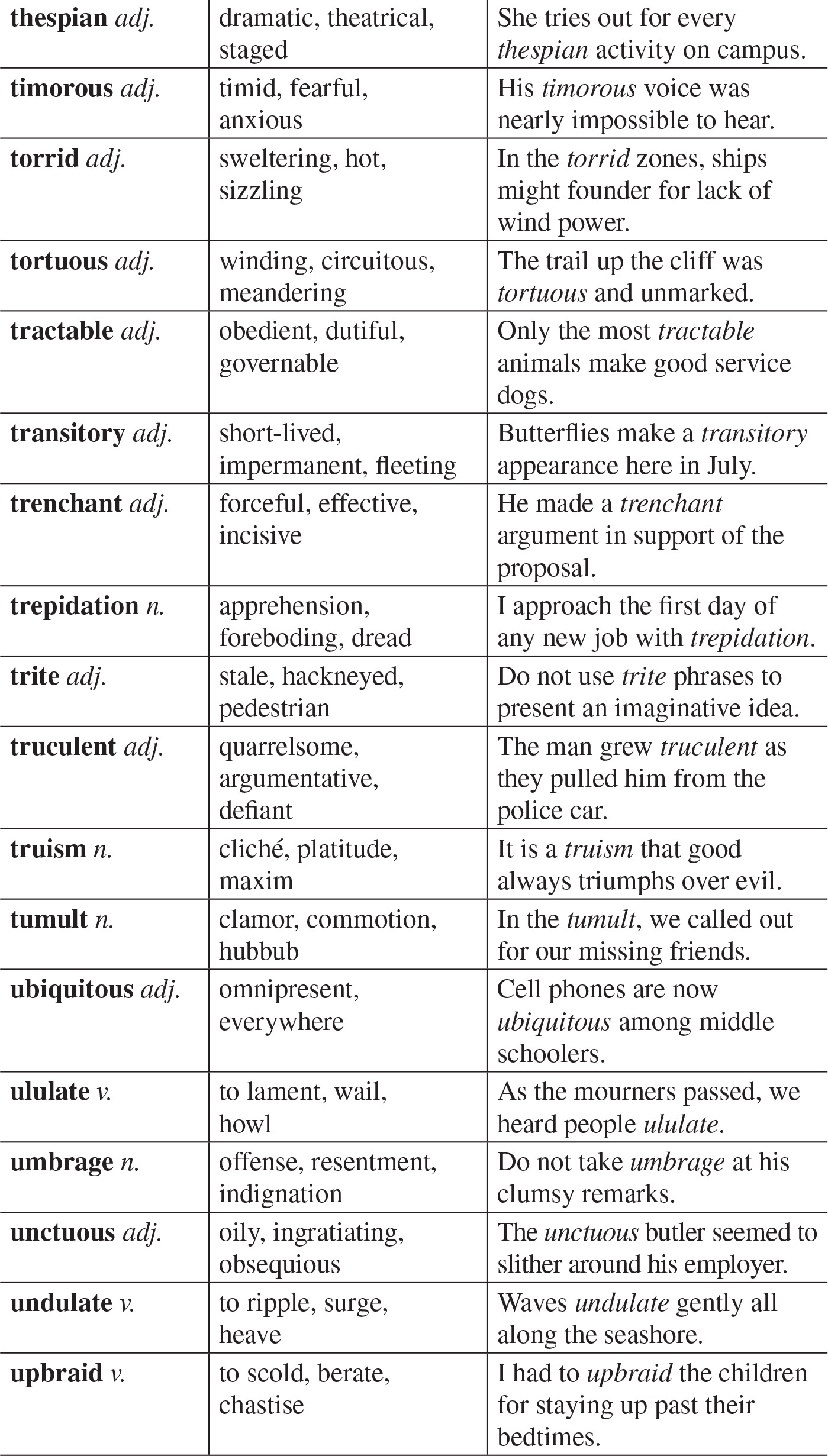
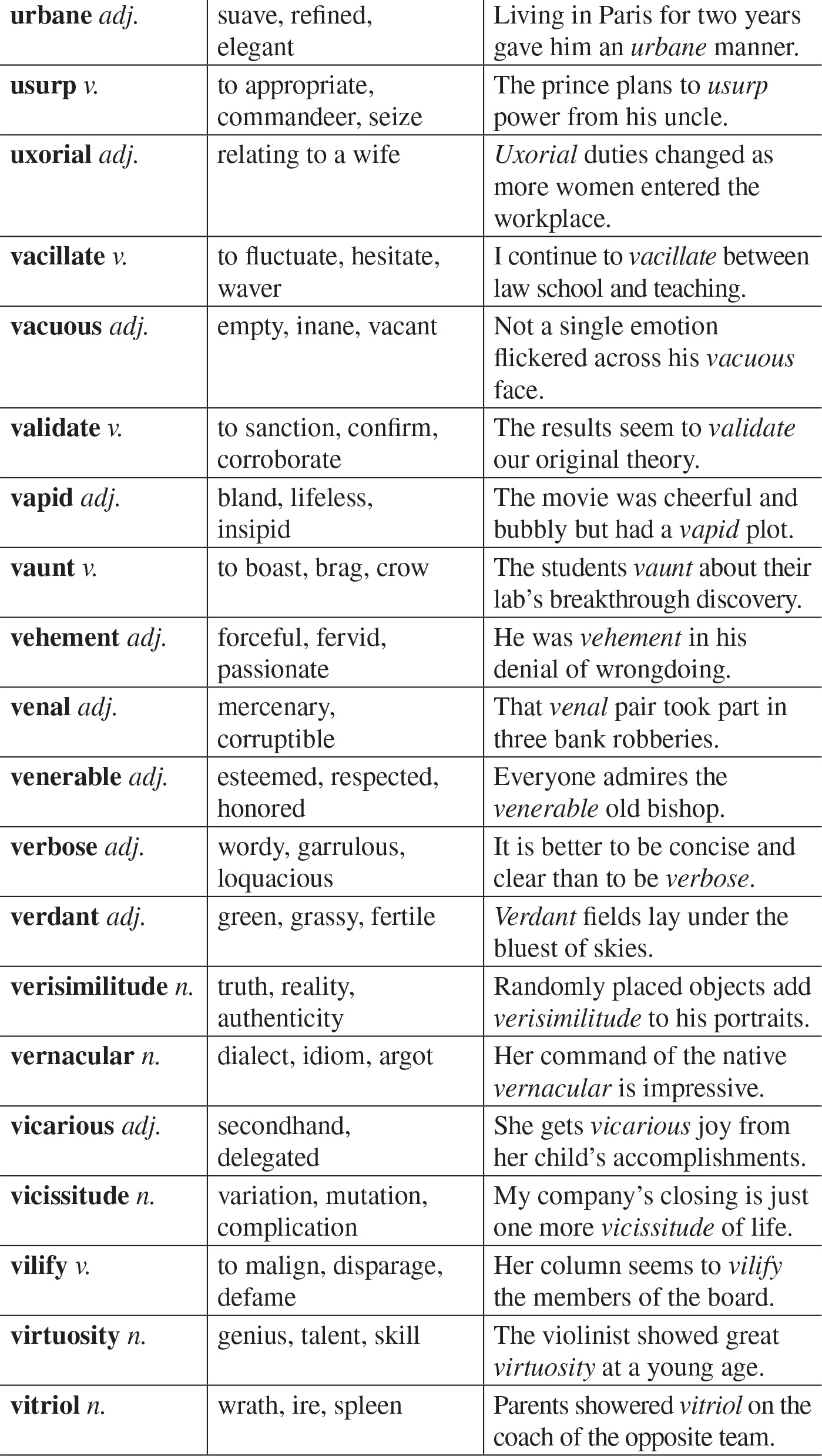
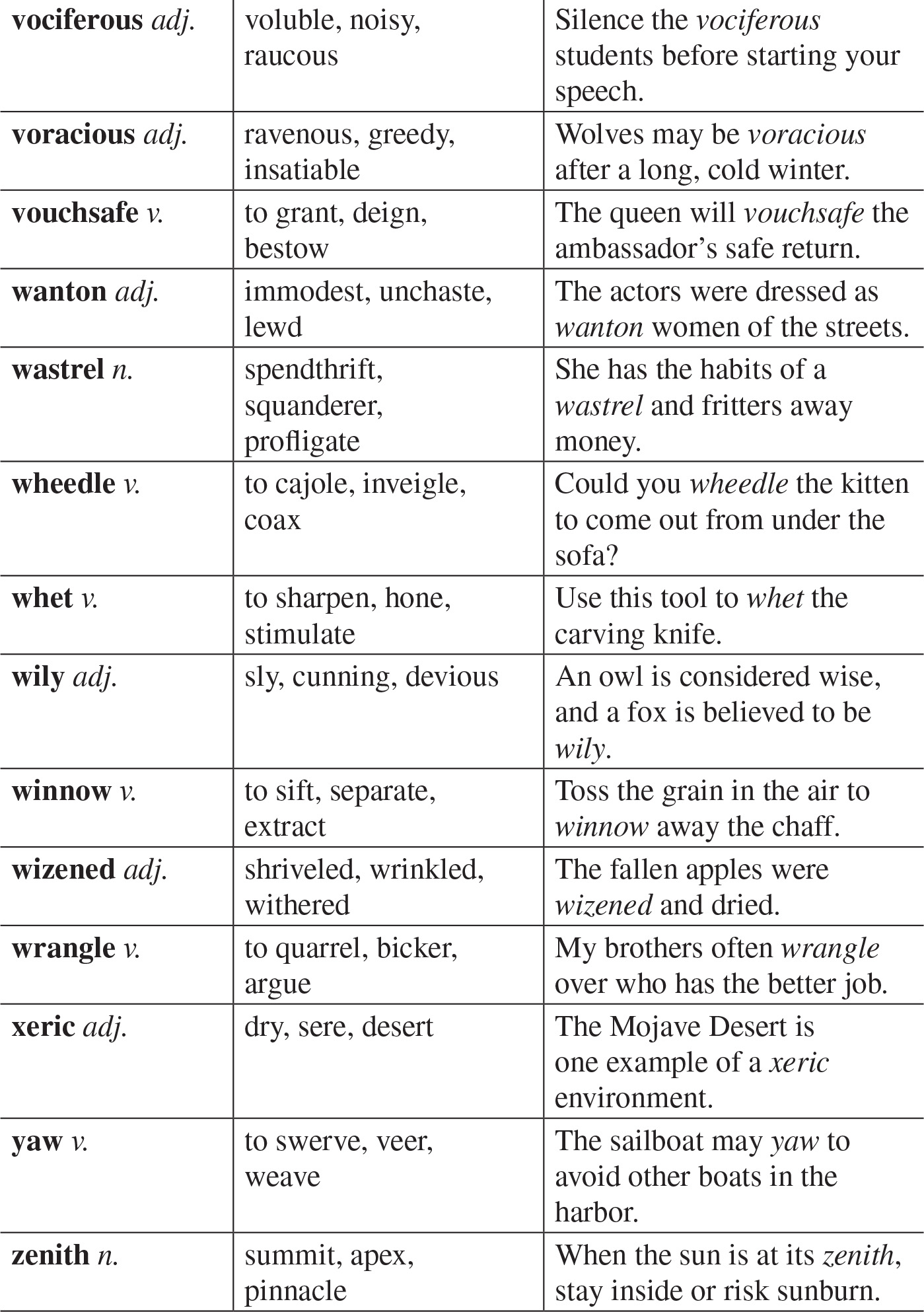
HEALTH CARE CONTEXTS
You may have seen some of the words in Table 3.2 in different contexts, unrelated to health care. Other words on the chart are specific to the medical profession.
Table 3.2 Health-Related Words




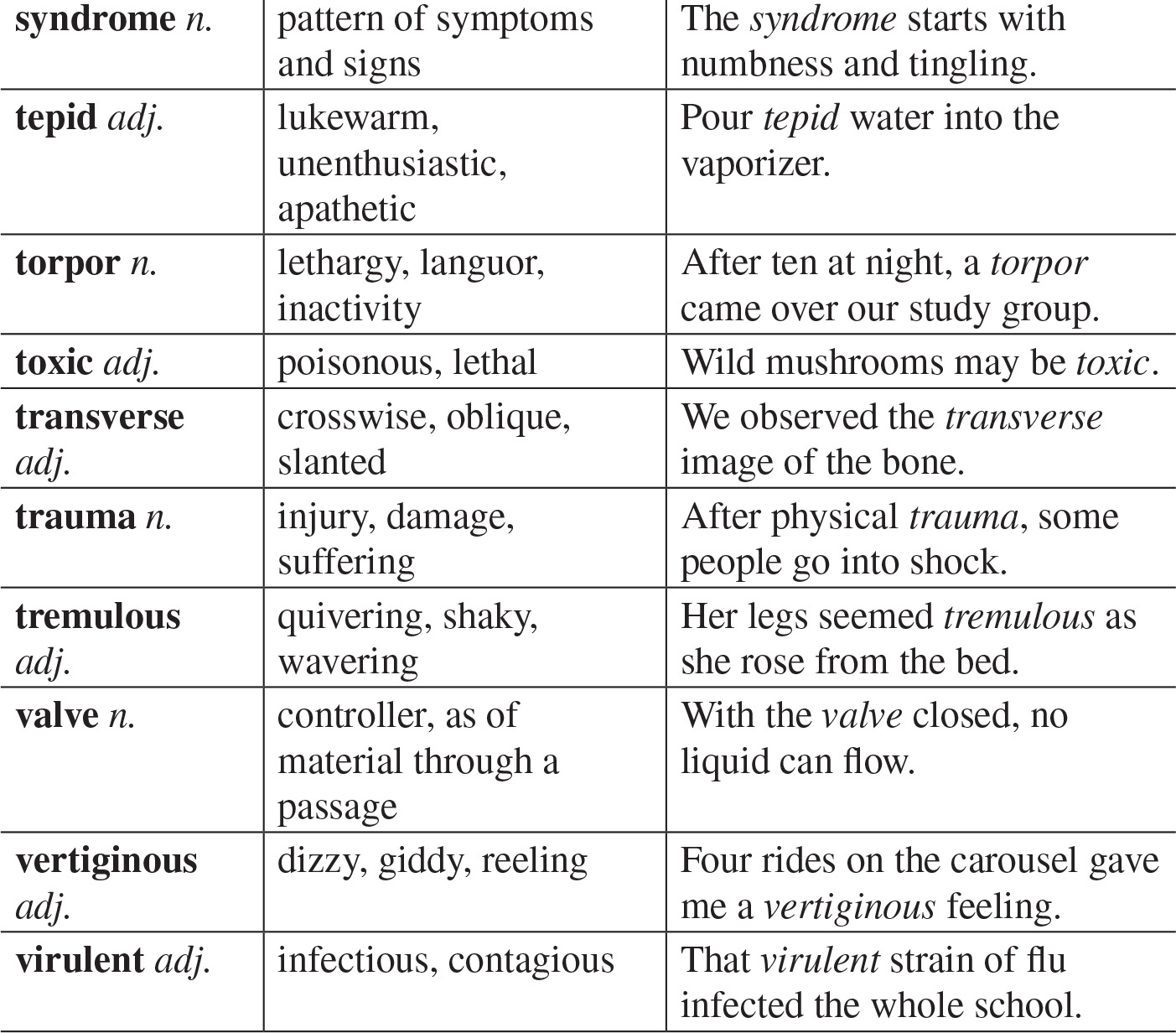
USEFUL ROOTS AND AFFIXES
Understanding word parts helps you to define unfamiliar words. This is especially true in the field of medicine, where knowledge of some key Greek and Latin roots and affixes can help you to decipher the most complicated manual.
Roots
There are hundreds of important root words that help you to decode medical terminology. Table 3.3 gives you just a handful of useful roots.
Table 3.3 Useful Roots

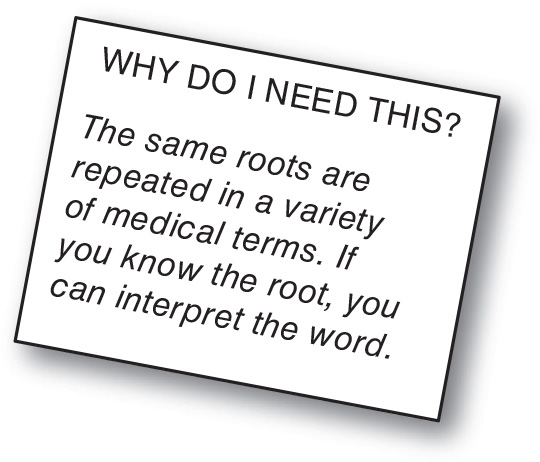
Prefixes
You know many of the prefixes in Table 3.4 from everyday life. Many will appear in medical terms you read.
Table 3.4 Useful Prefixes
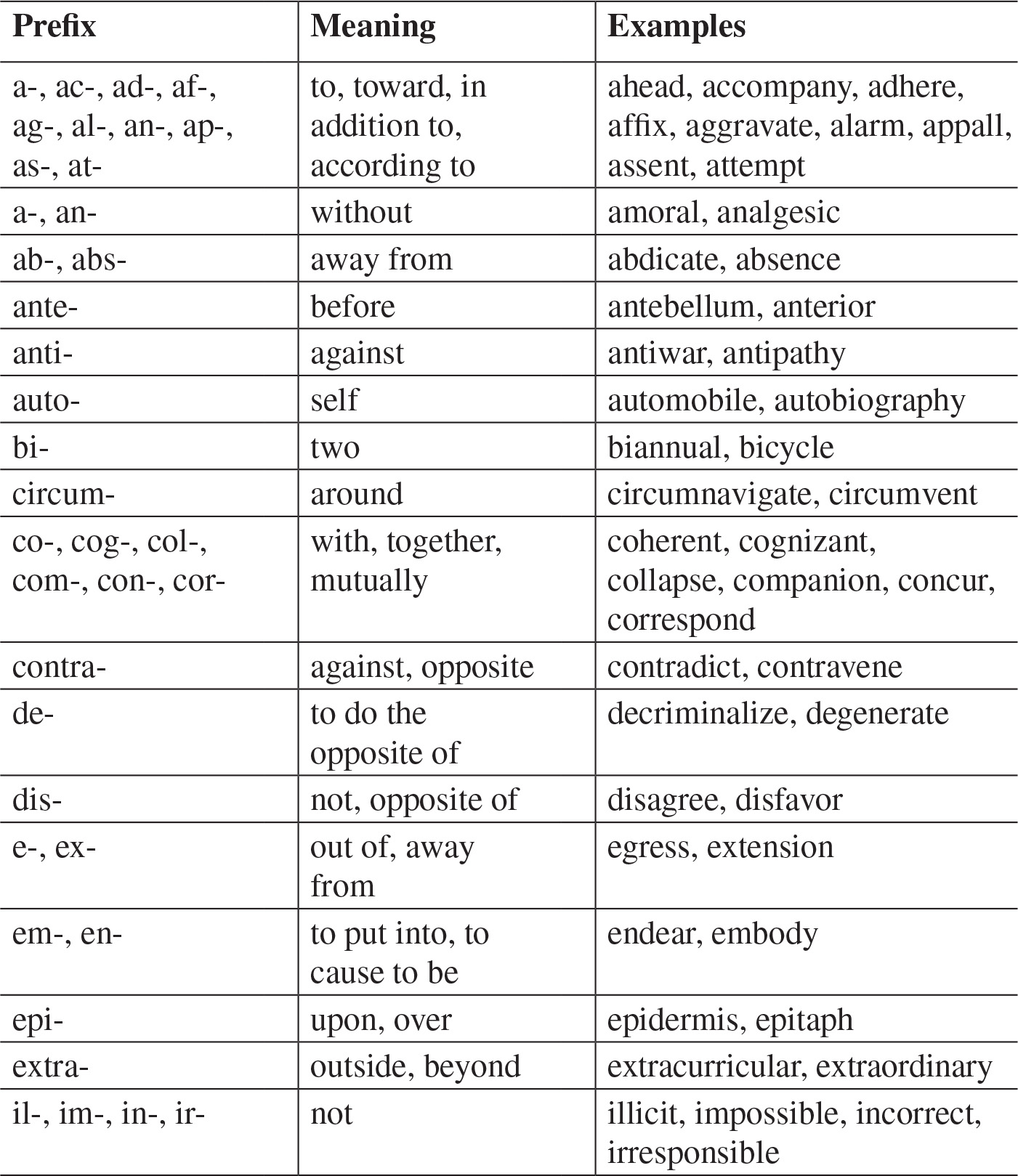
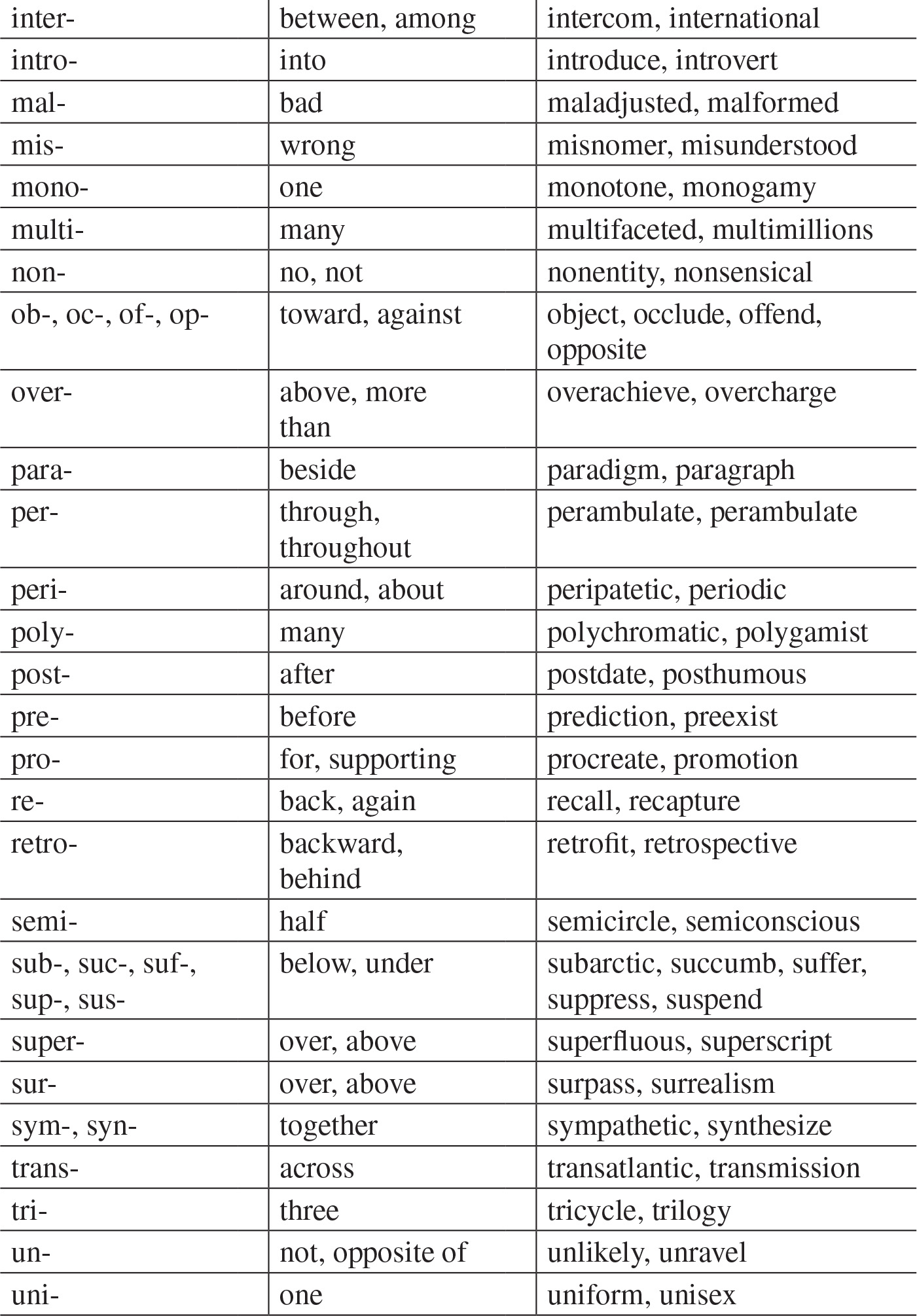
Suffixes
When placed at the end of a word, suffixes, such as those in Table 3.5, change the part of speech.
Table 3.5 Useful Suffixes

